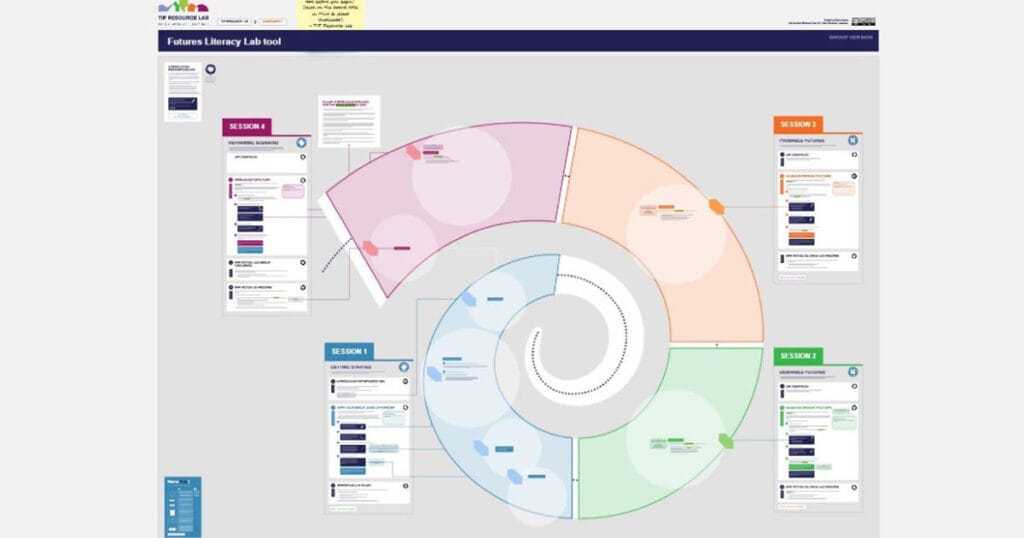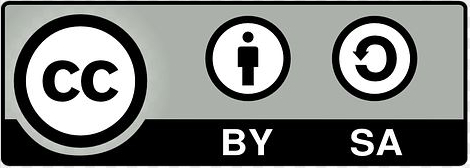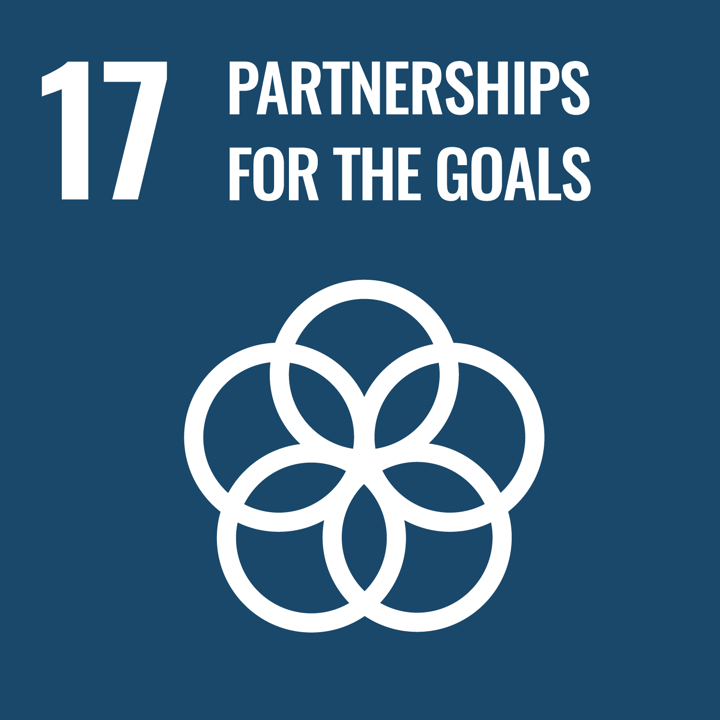
Intended End User: Teacher
Age Group: Lower Secondary; Upper Secondary
School Curriculum: Social & Environment Science; Languages; Arts; Applied Science
Themes and Topics: Futures Thinking; Information & Knowledge
Duration: 4 session (3 x 90 mins and 1 x 120 mins)
Type of Resource: Guidelines & Notes, Lesson Plans, Online Tool, Workshop
Keywords: Futures Literacy, Imagination, Workshops, Online Tool, Student-Centred Learning
Languages: English
Description
The Futures Literacy Lab was created by the Transformative Innovation Policy Consortium (TIPC), a multi-country initiative dedicated to how policymakers, academics and funding agencies can orientate science, technology and innovation towards transition and a more sustainable future.
This tool guides participants through a Futures Literacy Lab, a practical method to help us reveal, reframe and rethink the assumptions we use to imagine the future. It draws on TIPC’s Nordic members’ experience of running a Lab in partnership with UNESCO and The Nordic Institute for Studies in Innovation, Research and Education in 2021.
Participants in the Lab will exercise their imaginative capabilities and play with their images of the future. The point is not to predict the future, but to explore different stories about it, and to use these stories to reflect on our preconceptions about social, cultural, economic, environmental and technological drivers.
This is a capacity development activity and may lead to second order learning in relation to the assumptions and underlying beliefs influencing a TIP theory of change.
How to use this resource
The tool is for use by participants during a facilitated workshop series. It is not designed to be self-facilitated and requires (a) one lead facilitator, (b) a team of small group facilitators, and (c) a group of participants, some of whom will act as rapporteurs.
If you are preparing to facilitate the sessions, please refer to the guidance for facilitators and the slides introducing the Futures Literacy Lab methodology.
The resources
Futures Literacy Lab Guidance for Facilitators PDF:
The Tool: Future Literacy Lab and supporting resources can be accessed on the TIP Resource Lab website (here).
Other Futures Literacy resources hosted by the TIP Resource Lab can be accessed here.
The UNESCO Futures Literacy & Foresight website provides additional information and resources to understand the importance of futures literacy in preparing recovering and inventing is the face of change.
Learning Outcomes (Teachers)
- Elicit prior knowledge and further develop knowledge and comprehension of key Sustainability Citizenship key concepts, challenging established worldviews and values.
- Apply a range of suitable tools and frameworks to promote student Sustainability Citizenship
- Reflect on practice and examine national curricula to identify opportunities to promote Sustainability Citizenship in interdisciplinary ways and engage with external stakeholders.
- Collaboratively synthesise the knowledge, tools and frameworks to create educational materials and lessons plans adapted to their own local context
- Through workshop activities and communities of practice, build capacity and agency as Sustainability Citizenship educators and leaders.
Green Competencies
- Embodying Sustainable Values: Valuing Sustainability
- Embracing Complexity in Sustainability: Systems Thinking; Critical Thinking; Problem Framing
- Envisioning Sustainable Futures: Futures Literacy; Adaptability; Exploratory Thinking
- Acting for Sustainability: Collective Action; Individual Initiative
Creative Commons

The Resource Lab was created by the Transformative Innovation Policy Consortium (TIPC), a multi-country initiative dedicated to how policymakers, academics and funding agencies can orientate science, technology and innovation towards transition and a more sustainable future. The resources are shared here under Creative Commons License 4.0 Attribution and ShareAlike and with kind permission from TIPC.
SDGs



